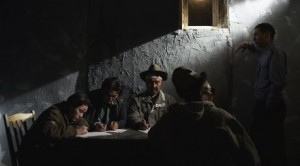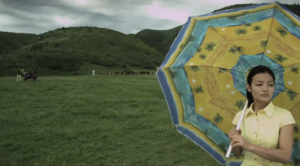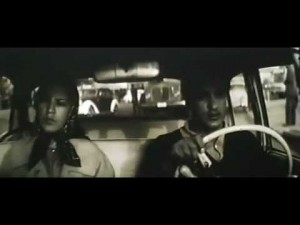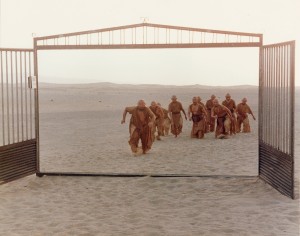From DVD Beaver, posted in November 2008. Some of the links may be out of date by now. — J.R.
The following selection is not only personal but very eclectic. It’s not exactly a list of my favorite films: I prefer Erich von Stroheim’s Foolish Wives (1922) and Greed (1924) to his Blind Husbands (1919), for instance, and if I had to take one Anthony Mann film along with me to a desert island, this would undoubtedly be The Naked Spur (1953) rather than his Man of the West (1958). Similarly, my favorite films by Nicholas Ray are probably Johnny Guitar (1954) and Bitter Victory (1957), even though Party Girl (1958), for all its flaws, is still a Ray film that I’d describe as sublime. But I’ve opted in these cases for the DVDs devoted to Stroheim, Mann, and Ray that I cherish the most, and the reasons why I cherish them are stated below.
A few other caveats:
(a) There are at least two other editions of Carl Dreyer’s Gertrud (1964) —- the U.S. one from Criterion and the English one from the British Film Institute—- that are top-notch, and they’re probably easier to come by in the Western hemisphere than the Australian edition on the Madman label that I cite. Read more
An “En movimiento” column for Caimán Cuadernos de Cine, written in July 2014 for their October 2014 issue. — J.R.



12 June (Chicago): As preparation for serving as a “mentor” to student film critics at the Edinburgh Film Festival, I watch online a film they’re assigned to write about, Adilkhan Yerzhanov’s The Owners from Kazakhstan. This is quite a revelation — at least for me, if not, as I later discover, for most of the students. Three city siblings arrive in the county to claim the ramshackle hut they’ve inherited from their deceased mother, and the tragicomic misadventures and forms of corruption that they encounter oscillate between grim realism, absurdist genre parody, and dreamlike surrealism, culminating in a doom-ridden yet festive dance in which both victims and victimizers participate. Unlike the hyperbolic violence that brutalizes the characters of Jia Zhange’s A Touch of Sin by reducing their humanity, Yerzhanov’s use of genre staples actually expands his expressive and emotional palette without foreshortening our sense of the people involved.


21 & 23 June (Edinburgh): The two high points of my six days here are two very different masterpieces from the first Iranian New Wave, Ebrahim Golestan’s Brick and Mirror (1965) and Parviz Kimiavi’s The Mongols (1973). Read more
Written for and published in Outsider Films on India, 1950-1990, edited by Shanay Jhaveri, Mumbai: The Shoestring Publisher, 2009 — a very handsomely produced book that I can highly recommend. — J.R.
The Creation of the World: Rossellini’s India Matri Buhmi

In my mind, there isn’t as much distinction between documentary and fiction as there is between a good movie and a bad one. — Abbas Kiarostami
From the beginning, film has owed an important part of its fascination to ambiguous overlaps between documentary and fiction —- sometimes experienced as conflicts between the separate aims of showing the world and telling a story, and frequently associated with incorporating both unforeseeable and carefully planned elements in a given film. It’s a tendency that can already be seen in the contrived gags of the Lumière brothers films, the re-enactment of recent famous events in some films of Georges Méliès, and the coexistence of fantasy and on-location actuality in Louis Feuillade serials. Later, of course, the same mix becomes re-animated in Italian neorealism and in work by French New Wave directors (perhaps most notably Jean-Luc Godard and Jacques Rivette and some of their immediate successors, such as Luc Moullet and Jean Eustache), in the improvisational strategies of Robert Altman, in some of the ambiguities found in the films of Abbas Kiarostami, Mohsen Makhmalbaf, and Jafar Panahi, and in practically all the films of Pedro Costa and Pere Portabella. Read more






